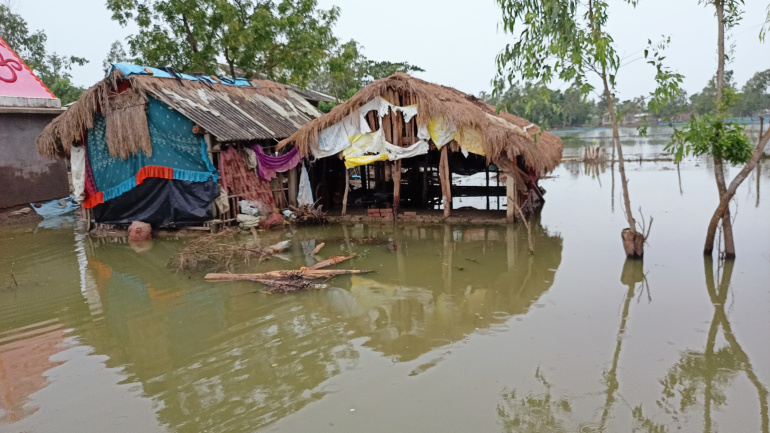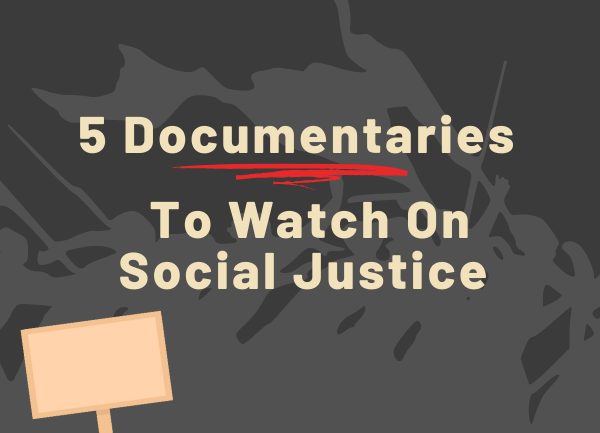When the lockdown began, I, as a cis-woman, had my own fears. Uncertainty, physical safety, mental health and the list goes on.
From the sudden knock on the door to hearing a thud in the middle of night — the isolation was turning into the horror movie.
While these were situational fears, a sense of restlessness, uncertainty reflected in day to day tasks.
That, as we know, is not a healthy way to live. Also, mine wasn’t an isolated case amid this lockdown.
And a survey by gender team at Jhatkaa.org on the experiences of womxn* during the lockdown confirmed the magnitude of mental battles that so many of us are facing.
Here are some quotes directly from the survey:
I am queer, person I feel, isolated some times,get into depression, I had to plan to move from my place and planning to get good placement these two things are in my mind and hope things will get better, I am eagerly waiting for the day.
There’s increased domestic violence at a place near me, people are becoming more aggressive.
Being a closeted person forced to spend the lockdown with your family is tough. Very tough. As it is, Indian families don’t quite value privacy.
One of the main highlights of this battle is mental health. Our womxn* are telling us that they are having “severe mental health issues” during the lockdown.
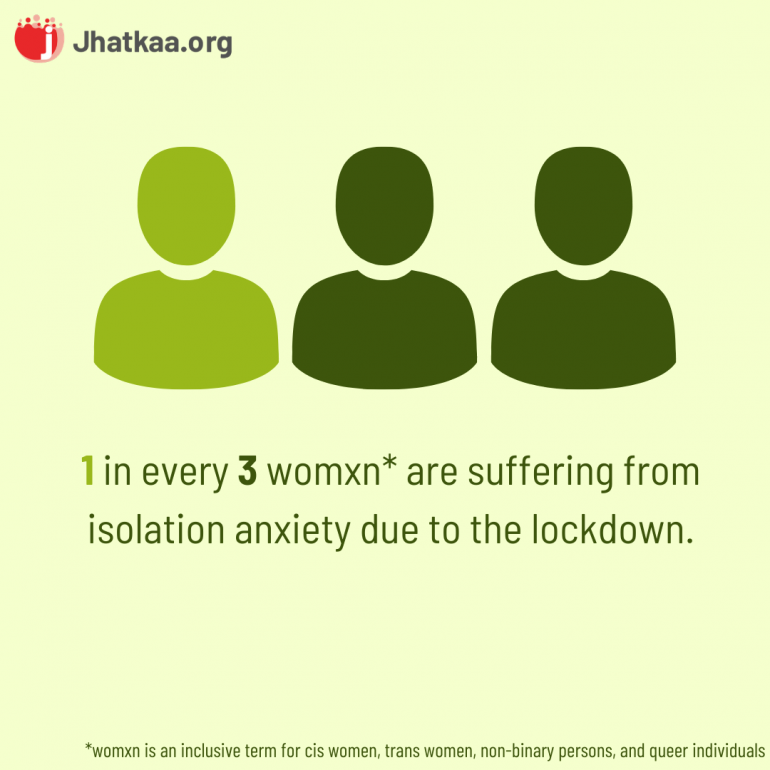
These numbers can easily seem intimidating. And as a result, the lockdown has changed our priorities — we are reflecting on finding ways to sustain ourselves. Mental health is an important factor. In consequence, the survey shows that the expectations of womxn from the government has waved towards giving importance to mental health.
Majority of the womxn from the survey, 52.8 % to be precise, want the government to come up with sustainable safety measures for women and queer communities during crises.
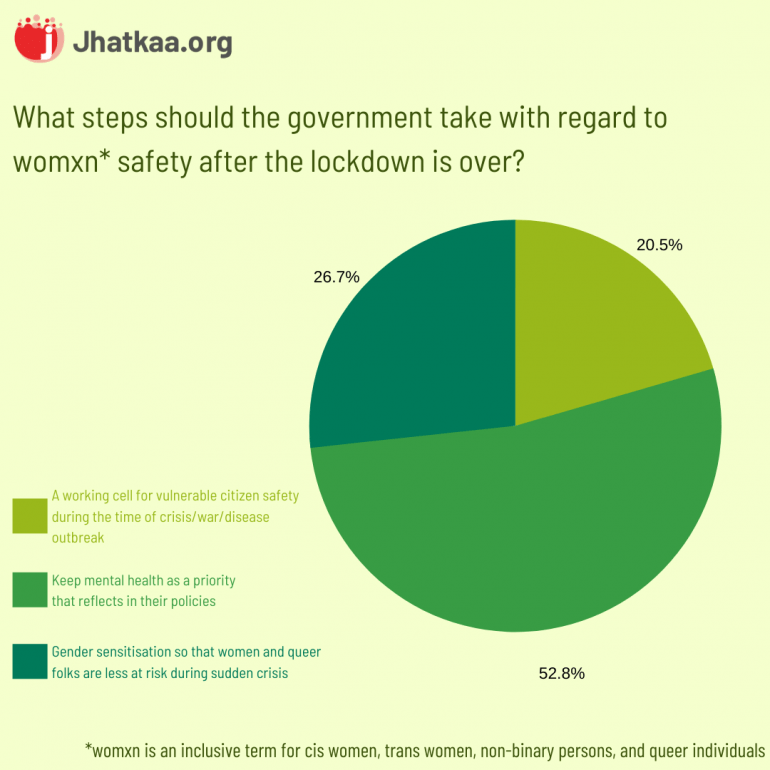
“I vote for gender-sensitisation so the women do not have to feel discrinination during the time of crisis,” says a survey taker.
When do you remember the last time women’s mental health was discussed at this extent? This is our window to push the ministries to revise their policies, to prioritise mental health.
While we talk about mental safety, let’s not forget the physical safety of our women, which again is a persisting issue. Can you imagine that only 4.5% would reach out to the police looking out for safety?
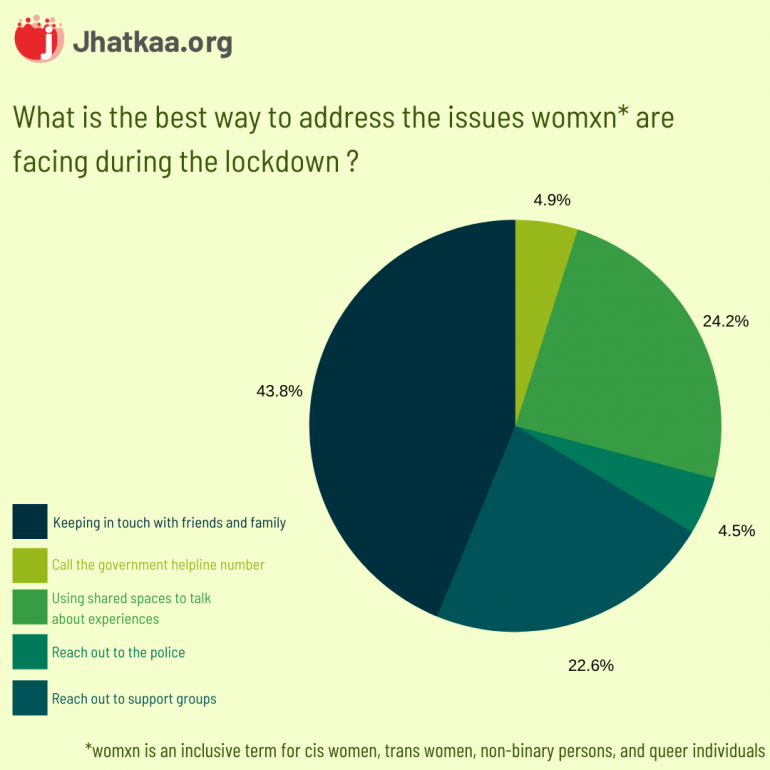
There’s a gap to be addressed here — lack of gender-sensitivity and trust amid police task force can be a reason that you and I might think twice before seeking police help. As communication is the key, we want to bring this up with police headquarters in various states in the country.
It’s going to be a long-term but a fruitful process. However, this is indeed the right time to take these concerns forward.
One of the ways to tackle the situation is by taking this data to the decision-makers i.e. police personnel, police headquarters, municipality corporations and like the Ministry of Human Resources (MHRD), Ministry of Health and Family Welfare etc.
The next step as a campaigner at Jhatkaa is to take these voices forward. Do sign up here to be a part of bringing gender-justice this lockdown and beyond: act.jhatkaa.org/campaigns/Gender-Justice-at-Jhatkaa
(Womxn is an inclusive term for cis women, trans women, non-binary persons and queer individuals)


